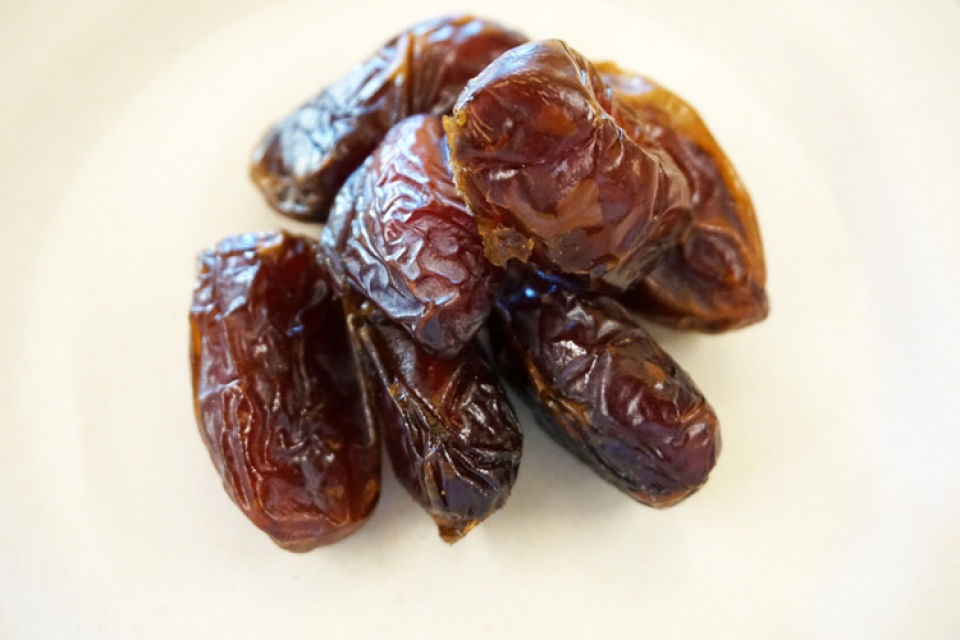Alternative Sweetener: Medjool Dates
Halloween is coming up fast, and right behind it is Thanksgiving and the holidays, which means we’re entering the season of sugar, sugar, and more sugar at our fingertips. From Halloween candy, cider doughnuts, and your co-worker’s holiday cookies, there are a lot of temptations out there. Other than swearing off sweets for the next three months, there may be a way to make it through without overdoing it on the refined sugar, but still enjoying the desserts of the season.
We recently hosted Laura Marquis, author of Sweets in the Raw, for one of our City Market food education classes. She taught us how to make delicious desserts using no sugar, including peanut butter cups, vegan strawberry cheesecake, and fig bars. A central ingredient that was featured in all three recipes was medjool dates. Do an internet search for low-sugar desserts, and there is a good chance medjool dates will be involved. Why?
The two most common types of dates you’ll see in grocery stores are medjool dates and deglet noor dates. Medjool dates are larger, softer, and sweeter than deglet noor dates, which is why they are more commonly found in dessert recipes. Dates are considered one of the oldest cultivated fruits in the world, and in the US, 95% are grown in California’s Coachella Valley where it’s hot and dry, with a good supply of groundwater.
You may have a little sticker shock when looking at medjool dates, but the price reflects how labor-intensive growing dates is. Dates grow on date palm trees, and growers must hand-pollinate each palm to ensure a good yield. Additionally, they must climb the tree to cut off the trees’ dangerous thorns, thin the dates to ensure there is enough airflow and to provide enough space for the dates to grow, cover the trees to protect the harvest from insects and birds, and then harvest the dates by hand.
But back to the desserts. Medjool dates have a caramel-like flavor, chewy texture, and are high in natural sugars like glucose and fructose, making them a great alternative to refined sugar. Additionally, medjool dates are high in soluble fiber, high in potassium and copper, and are a good source of other trace minerals. To use in recipes, you can make date puree by processing 1 cup pitted medjool dates with ½-1 cup hot water. The puree can then be substituted for 1 cup of sugar in recipes.
Not ready to try experimenting on your own? Check out some of our favorite medjool date recipes:
Sticky Toffee Pudding Cake
Curried Chicken Salad
Fruit and Nut Balls
Watermelon Salad with Rosewater
Vegan Strawberry Cheesecake
So Easy Peanut Butter Fudge
Not sure where to find dates? You can find bulk and packaged dates in our Produce Department and packaged dates in our Bulk Department.
